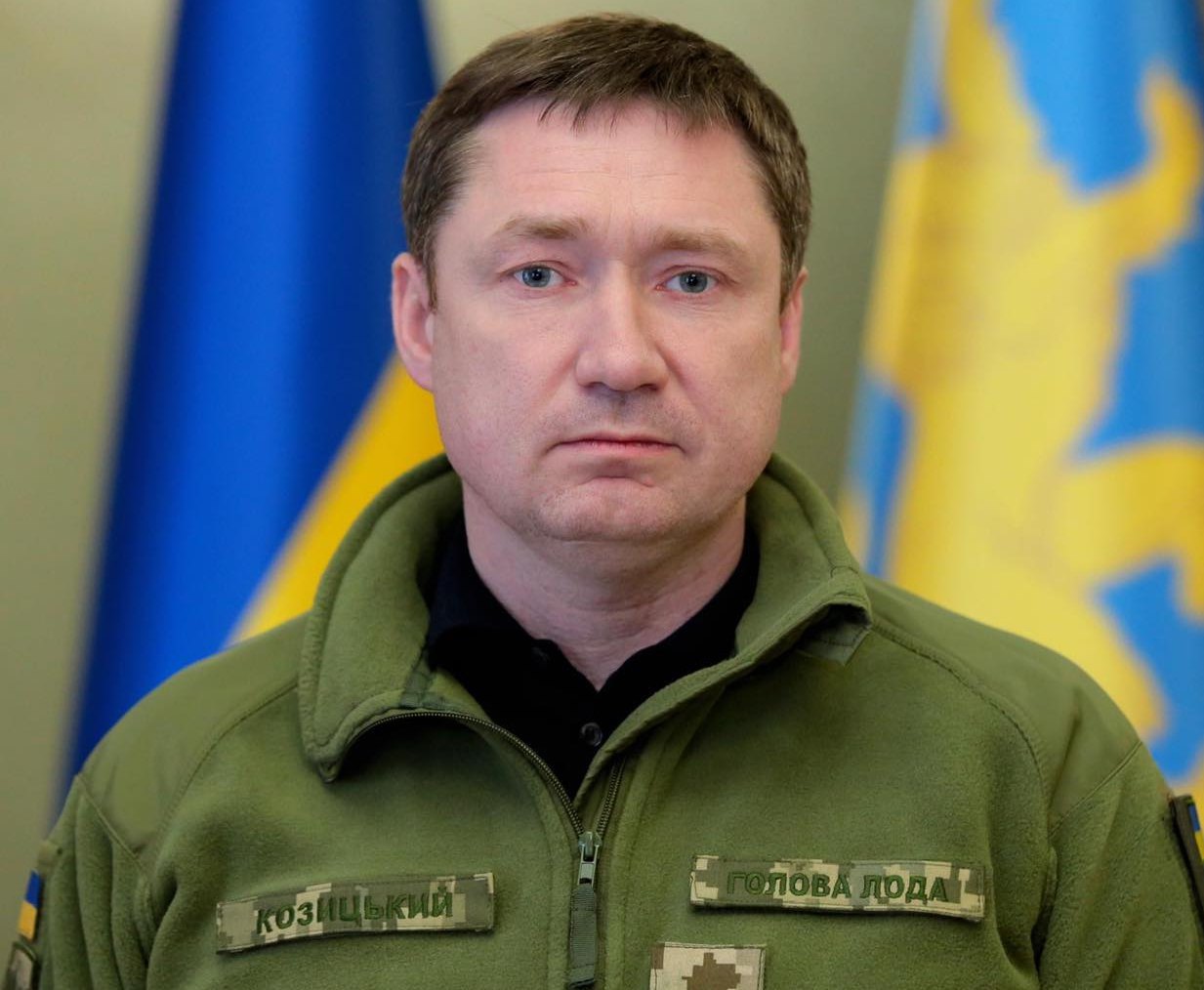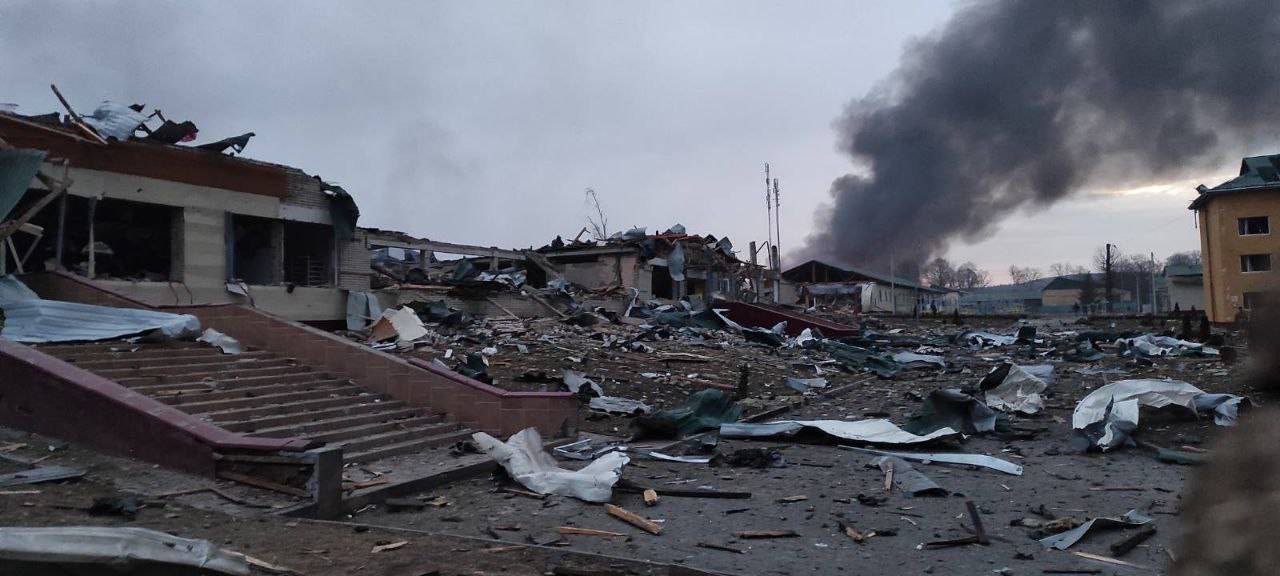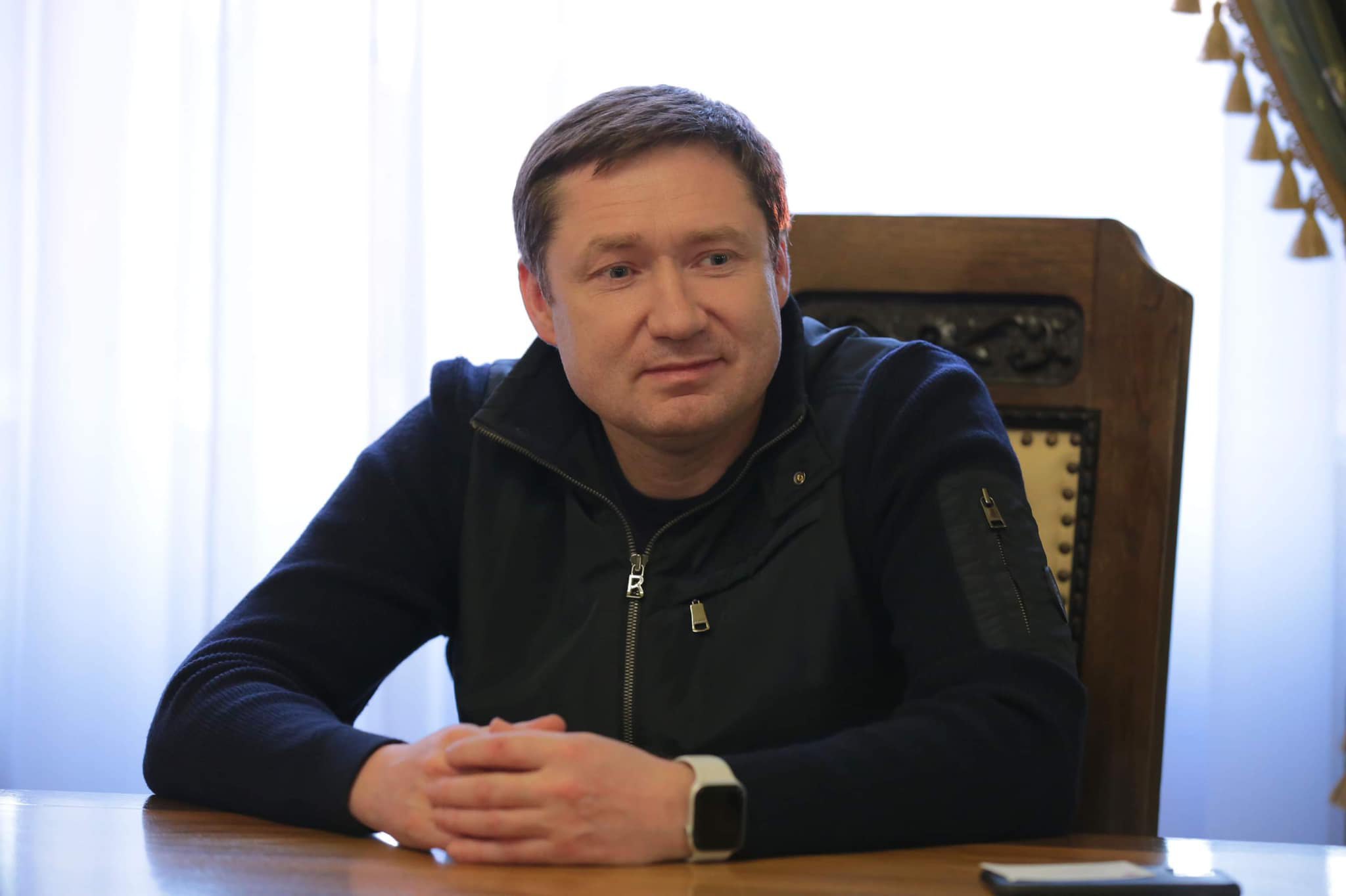
”Lviv region has one of the largest military capacities”
Sonia Koshkina (S.K.): Let’s start with the airstrike near Lviv airport.
That happened right in the city, at the aircraft repair plant near the center. An attack on the city, where, in addition to thousands of local civilians, over 200,000 people from all over the country lived at the moment.
The situation is stable now. The bad news is that the object is completely destroyed. The good news is that no one was killed, only one person got minor injuries.
Oleg Bazar (O.B.): Immediately after the attack, you signed an order to prevent the disclosure of information during the legal regime of martial law. Was that a reaction to the words of the mayor of Lviv, who named the plant that was hit by missiles?
No, the order was signed before; just nobody paid attention to it. It has nothing to do with Mayor Sadovyy. He, in my opinion, reacts very adequately and constructively to everything that is happening. We are cooperating very effectively now.
I should clarify: the order concerned not that many mayors and officials, but directors of plants. There were a few of their interviews the day before, where they talked about what exactly defense companies do. We, therefore, have persuaded them not to do so anymore, even if the mentioned enterprises are not working at the moment.
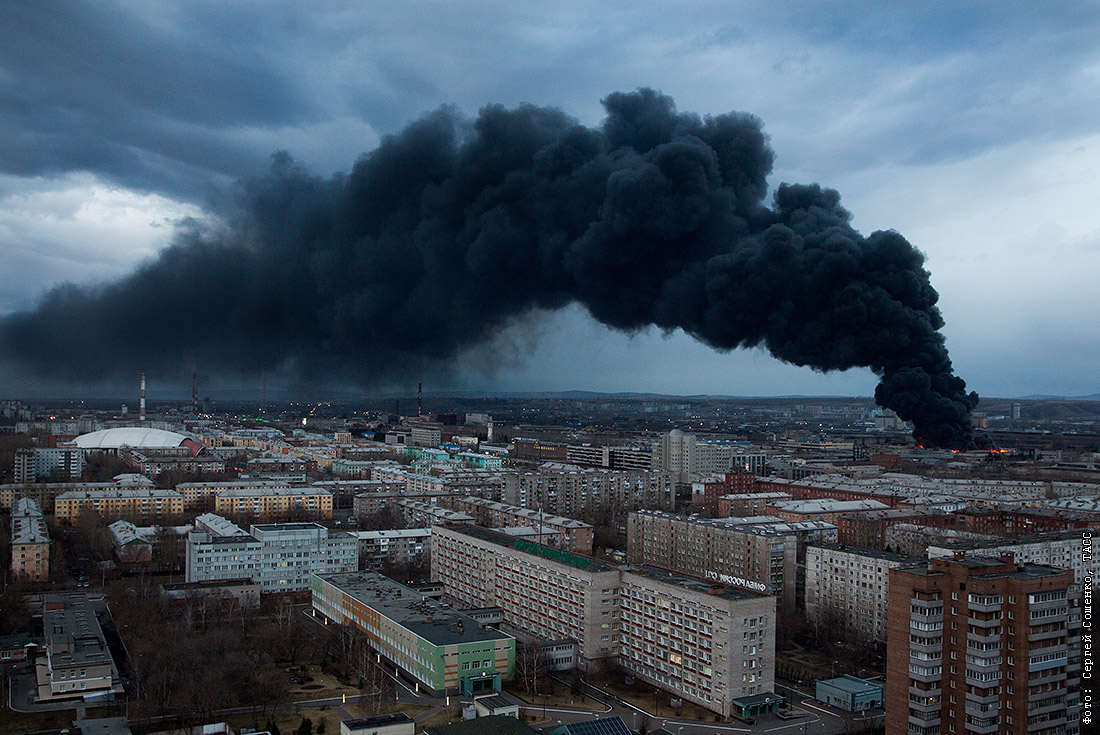
S.K.: Just before Russia’s attack, most regions and cities underwent preventive training, including on forming territorial defense units, and strengthening strategic facilities. After February 24, all of these skills were very much needed immediately, but the Lviv region managed to win another three weeks due to its geographical location. How exactly have you used this time?
Lviv region has one of the largest military capacities – a large number of military units and military plants are located here. But from the first day of the war, we act not as a territory but as people. Over 26,000 citizens were mobilized to join the Armed Forces during these weeks, not including people who joined the territorial defense.
In addition, before the war, we formed one squad, and then we were able to form another one - the headquarters permitted us. More than 20,000 people volunteered to participate in the territorial defense or territorial defense voluntary formations in Lviv region. And we indeed used the time to improve their training. We are currently teaching them paramedical skills, giving them shooting training and the basics of military affairs.
O.B.: Please explain in more detail about voluntary formations in territorial defense. What is their legal status?
According to the law on territorial resistance, during the third stage of the deployment of territorial defense, the deployment of voluntary formations of territorial communities is allowed. These are formations that help protect the territory during hostilities. They are created based on territorial communities, together with the leaders of territorial defense battalions and heads of territorial communities, following a special protocol, according to which the leaders of these units are determined.
In the future, these structures can carry out patrols and, if necessary, perform an auxiliary function for territorial defense. Our task is to unify them: to give them uniform, provide general and medical training. Also, to correctly group them, using a conditional standard by which they can be organized. For example, if we take a hundred as a basis of a unit, in Lviv we have more than 66 such units. In the region, we have more than 150 of such hundreds, which are being formed.
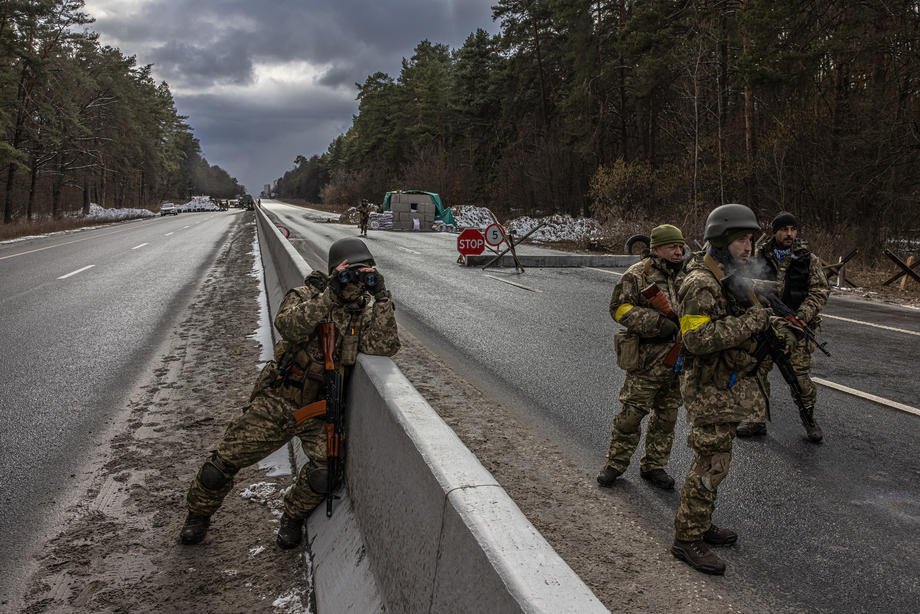
O.B.: Do they receive weapons?
Not at the moment, because we are only preparing them. An order has already been issued to establish armaments in territorial communities, where weapons will be stored and, if necessary, assigned to people following strict accounting records.
O.B.: In general, how do you assess the work of the local governments in the Lviv region during this period?
I have no problems with any mayor, no misunderstandings. Even if something [unreasonable] goes from them to the press, these are small emotional moments, but not more than that. What I like right now in the activities of local communities: I see a minimum of politics.
”Today there are 350,000 to 400,000 internally displaced people in the region”
S.K.: How many internally displaced people are in the region now? What is the situation?
It is very difficult to give the exact number of internally displaced people. Conventionally, for ourselves, we distinguish two waves - those who left immediately and those who were forced to leave their cities after the beginning of the mass bombings. In the first days, between 50,000 and 70,000 refugees passed through us - those who went further across the border. People stood at the border for two or three days. Currently, about 20,000 people cross the border every day.
According to our estimates, there are between 350,000 and 400,000 internally displaced people in the region today, but the number is very dynamic. And, for example, speaking about border crossing, about 50,000 people, mostly men, returned to take up arms now.
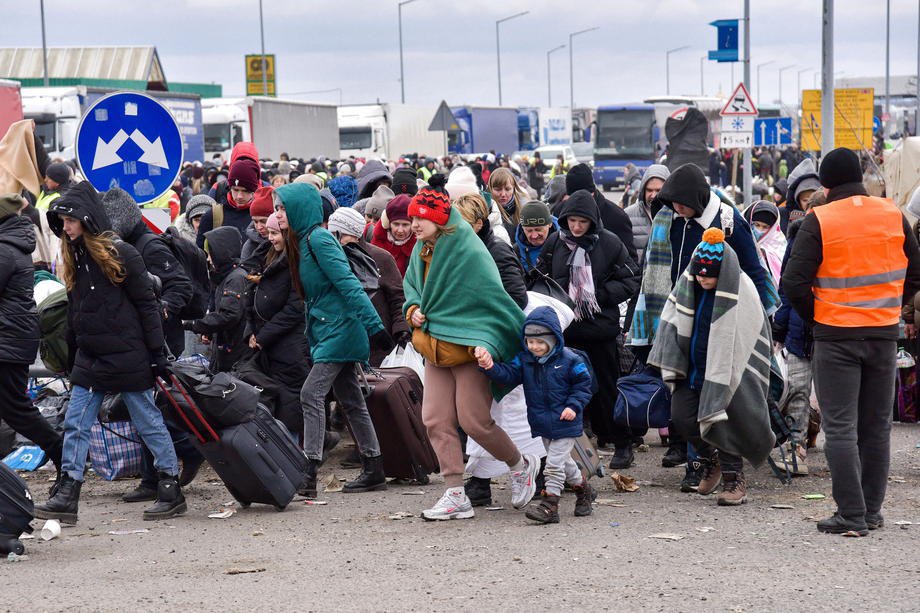
Our main task is to shelter people and provide opportunities to eat. Is there enough space for it? If we initially settled people - in the city and the region - in sanatoriums, resorts, kindergartens, now we are looking for libraries, theaters, and even unfinished premises or those in poor conditions, where quick cosmetic repairs are possible to put them in order.
We will, of course, continue to receive as many people as needed.
O.B.: Internally displaced persons create a huge burden on the region’s health and social services. To what extent can the region withstand such loads for a long time?
Speaking of the health sector, due to the Covid-19 pandemic, we have modernized facilities – repaired and purchased equipment for the hospitals. In Lviv region, we have one of the largest health care networks in the country. Although these investments were a heavy burden for the budget, they allowed us to cope with the pandemic. Therefore, at the moment, even taking into account the number of people who have arrived, we have no problems with providing health care.
We are offered to deploy additional field hospitals. We have already set up a hospital with the Samaritan’s Purse International Disaster Relief. Next week [we do the other one] together with the Israelis. This week we are getting a mobile hospital from the Netherlands, and we will likely deploy it. We will stop there: I don’t see the need to deploy additional medical facilities - there is no need for that.
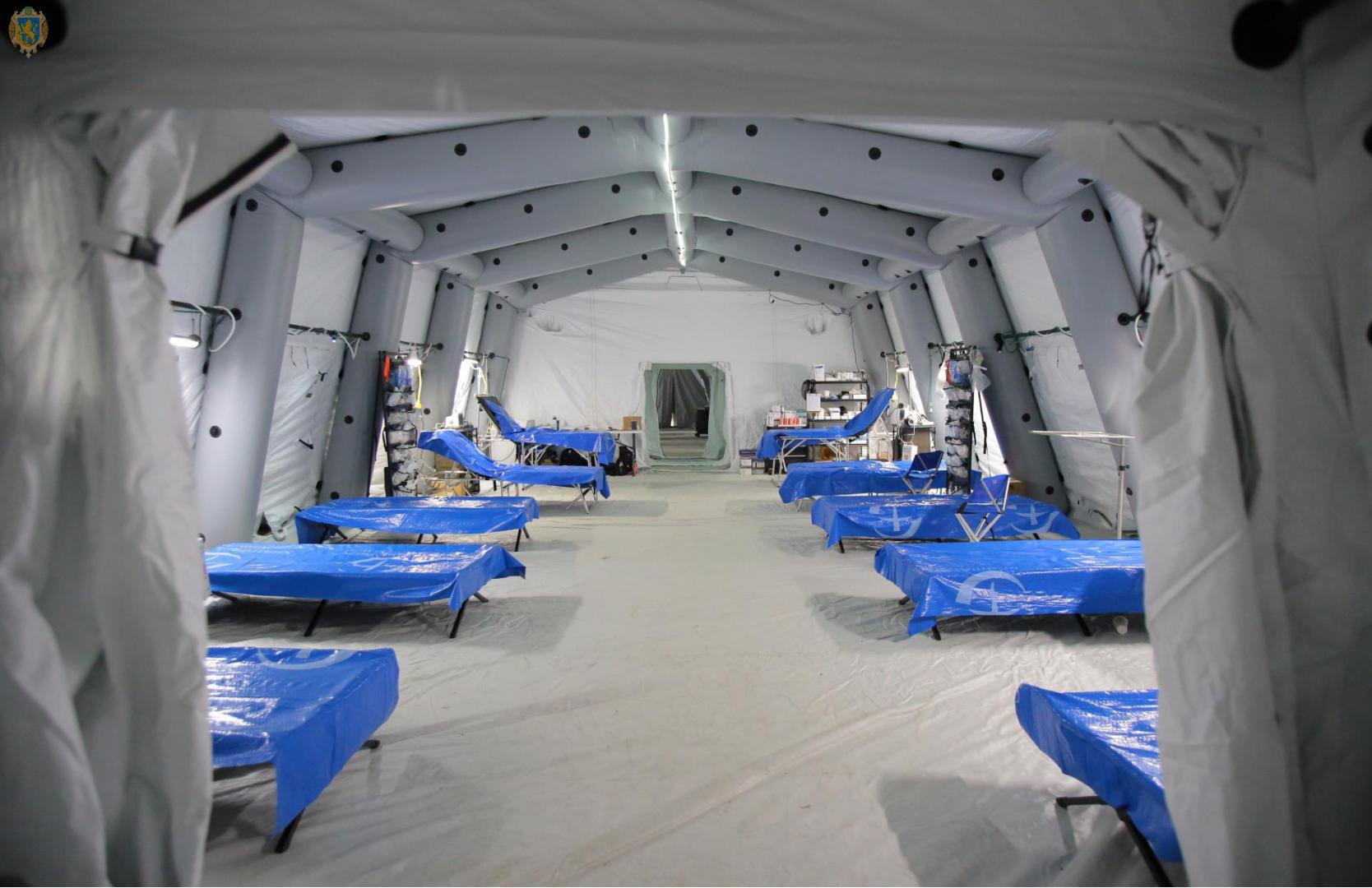
We also manage to provide medicines - thanks to humanitarian aid, volunteers and entrepreneurs, and residents of the region engaged in its distribution. We have a corridor established from Poland with hubs in Lublin, Ryaszew, and Przemyśl.
Speaking about food, together with the World Central Kitchen and local entrepreneurs - the Fest group, Vado Arzumanyan, Restaron, Emily Resort – we cook around 25,000 servings of hot food every day. And we plan to increase the number.
We are waiting for the arrival of organizations such as the United Nations and the Red Cross. Unfortunately, we do not see them very active at the moment.
On the other hand, we are trying now to start preparing dry rations to send them to the east.
Yesterday (ed. - March 18) Lviv region sent 1,300 tons of humanitarian aid to Kyiv, Chernihiv, Kharkiv, Mykolaiv, Luhansk region. The day before yesterday – 1,200 tons. In fact, we are now a kind of a humanitarian hub. It is not an easy job, especially since we did not have such experience. And if not supported by volunteers and local entrepreneurs, it would have been far more difficult to do this job.
S.K.: You said that you did not see the activity of the Red Cross and the United Nations. Why so?
We indeed lack the systematic work of humanitarian missions and organizations. I thought it would be like in a movie: the war started - they come and start work. But this is not the case. We talk a lot about the need for military assistance and pay little attention to the humanitarian component.
It is rather strange when international organizations travel to us for weeks, saying that they are adjusting the processes, and the real humanitarian problems are actually solved by the administration, local entrepreneurs, and volunteers.
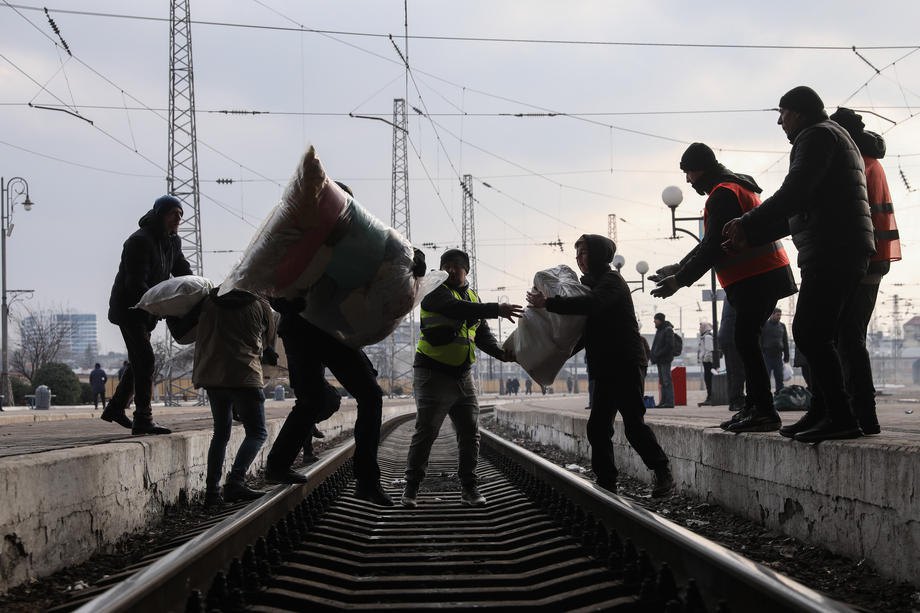
We deployed 80 warming centers together with the State Emergency Service of Ukraine during the war. Not with the UN or the Red Cross.
O.B.: Do you have the data on the number of residents of the region who went abroad and became refugees?
We know how many people have crossed the border in our region in total - it is over a million. There was no goal to count exactly how many residents of the region had left. We are more interested in the number of the employed population, the number of vacancies, and so on.
O.B.: At the same time, it seems that many people left western Ukraine. How do you feel about the fact that Galicians also went abroad en masse, although, fortunately, Western Ukraine is relatively safe compared to Luhansk or Kharkiv regions?
We are the region with the most mobile population. The number of people from Lviv region who regularly travel abroad is much higher than those from the Kharkiv region. And the number of ties with Poland, including economic ones, is also much bigger among the residents of our region. Therefore, there is nothing bad or strange. People will come back. They just need to see incentives, see that it is safe and that they can make money.
I want to mention that more than 20,000 men have returned from abroad to the Lviv region since the beginning of the war. I have queues at military enlistment offices - people are standing, both to register and to be mobilized for service in the Armed Forces.
O.B.: At the same time, many complaints about the senseless mobilization are coming from Lviv region: people with combat experience are not mobilized, but those who do not have such experience are. There are also complaints that the displaced people are being mobilized in the first place, including IT professionals, who are most useful in their main job and are an important source of income for the country. Are you aware of this problem?
I met with the IT cluster, which includes more than 200 companies. You can ask them if there is such problem.
It seems that the Lviv region’s mobilization process is quite balanced. We try to make people feel safe, but at the same time, they are mobilized if necessary by the law. We negotiate with the military registration and enlistment offices the same approach. Of course, there could be mistakes during the war, but I would not say that there are distortions towards displaced people or other groups of people in the Lviv region. Let me remind you: we have queues at military registration and enlistment offices.
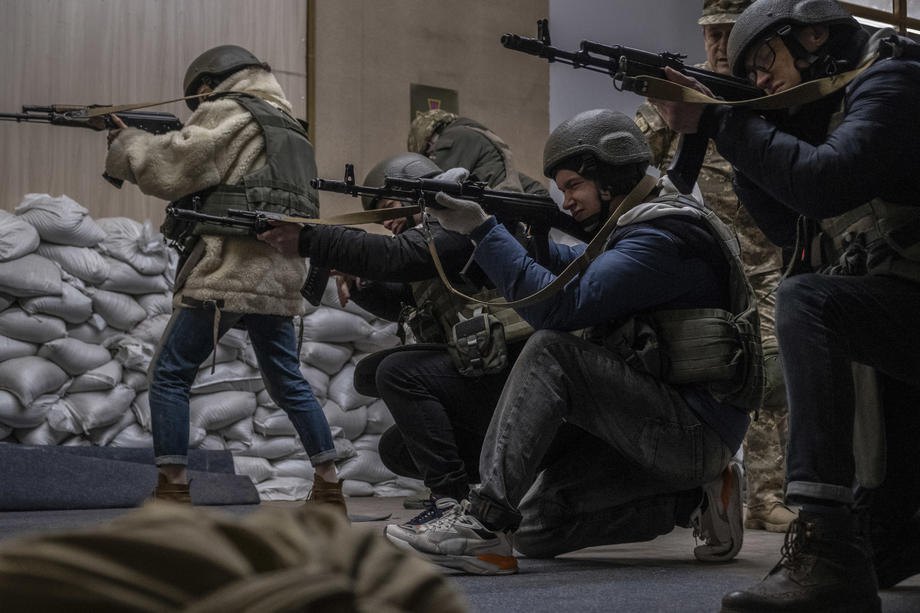
“We currently have about 160 inquiries regarding the possible relocation of enterprises”
S.K.: The government is urging businesses to move production to western Ukraine from regions where active hostilities occur. Have many of them planned to move to Lviv region? Or maybe already moved?
We have formed a list of enterprises with vacant production areas or plots and abandoned plants that can be reanimated. And we are talking to entrepreneurs who want to move their facilities here. We currently have about 160 inquiries regarding the possible relocation of enterprises. Several medical institutions have already moved, including the Kyiv Center for Pediatric Cardiology and Cardiac Surgery - they have found a place where they can perform surgeries.
O.B.: To what extent has the region’s economy suffered from the mass exodus of people abroad? Do you understand how many enterprises and businesses have stopped or temporarily suspended their work?
At present, according to the statistics for January and February, we have a budget surplus. We have a large number of small and medium enterprises and entrepreneurs on a single tax. At the request of the government, many companies made prepayments for taxes - to support the Ukrainian army.
After the first decade of March, we have full budget execution. But we predict that twenty to fifty percent of the regional budget may be unfulfilled by the end of the year. It will all depend on the situation.
There is an interesting mechanism to support local producers - the government allows to advance 30% of food production, which can provide humanitarian aid. Suppose there are several more such instruments of the same type, for example, the resumption of financing under the ‘5-7-9 program’ (ed. - state compensation to entrepreneurs of their commercial borrowings). The use of such instruments will allow us to show good economic results.
O.B.: What mechanisms do you think should be introduced to make the economy work?
Now is the time to understand that there is a need for production. Before the war, several large manufacturers of construction products entered our market. I think there will be more such enterprises.
We will also have an increasing number of crossings with the European Union; transport infrastructure will be developed, including railway and warehousing infrastructure. These are all growth opportunities that we will have.
